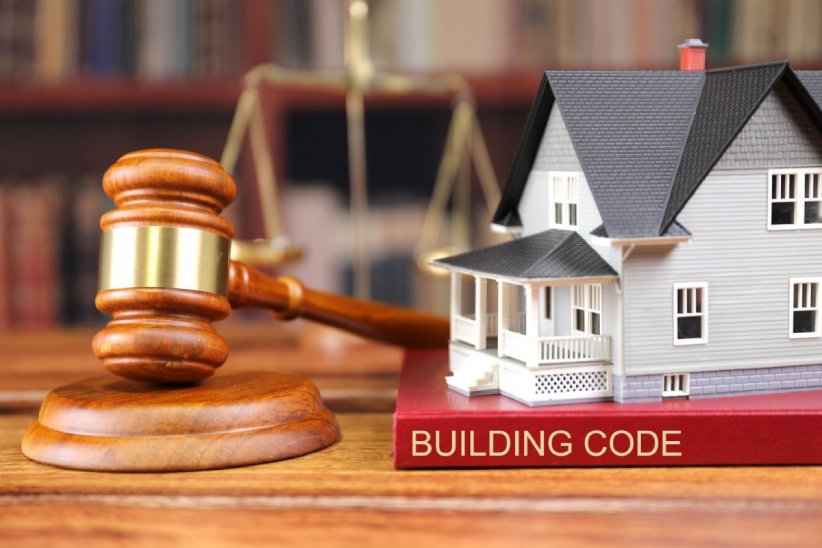Two items on the Salida City Council’s November 20 work session had a few things in common: energy standards, regulations, and fees, and the impacts they would have on the environment and Salida.

The first item was a discussion regarding adoption of the 2021 series of International Energy (IE) Conservation, Fire, and Building Codes. This would be an action undertaken in tandem with Chaffee County and the Salida Fire Department.
It should be noted that the City of Salida contracts with the Chaffee County Building Department for code and inspection work, and that adoption by the Board of County Commissioners (BoCC) is required for any changes. The BoCC takes up the matter on Tuesday, November 28.
The entities are planning to adopt the 2021 versions of the Building and Fire Codes. The state of Colorado now requires all local governments to transition to the 2021 codes, a result of HB22-1362, passed in 2022, by no later than June 1, 2026.
The second item was an update by Public Works Director David Lady on the city-owned electric vehicle (EV) chargers, preparatory to setting proposed charging rates.
New Building Codes will have major impacts, steep learning curve
The SCC’s agenda packet included the text of the 2021 International Building Code (IBC), with suggested amendments highlighted in blue. Chaffee County Building Official Pat Green led the SCC through multiple examples of amendments to the IBC. For example, the need for certain annual permits would be omitted in favor of project-specific permits.
Sheds under 120 square feet, which do not need to be permitted, cannot be used as a habitable space; anything that needs to store a vehicle, regardless of size, does need to be permitted; and a sleeping room or bedroom has to have a 16” closet, a fire exit, and smoke/fire alarms, etc.
Green also pointed out the need for the code to “more clearly define address visibility of address signage, to aid first responders – especially with ADUs being built on properties.”
After explaining other amendments to the residential code and pointing to very specific definitions (such as “tiny home” vs. “tiny house”), it came time for questions from the SCC. Members Harald Kasper and Justin Critelli asked if any builders could weigh in on questions like how the adoption of the codes would affect building costs.
“Any time you get something like this, it’s going to drive up costs,” said Salida Community Development Director Bill Almquist.” He alluded to training costs for staff, contractors, and the building department as well as a lack of technical and material resources in the county, though a few may already be anticipating and building to 2021 standards.
“Developments have seen some significant costs where they have adopted the new code – Crested Butte as an example. [Yet] they have requirements above and beyond what we are looking at – but about $75k per unit are added to costs there – these are larger houses [twice the average size here] but it’s entirely possible we will see average cost increases of 5 percent to 10 percent in Salida, concluded Almquist.”
“We have a learning curve – we are jumping to the 2021 code from the 2006 one, missing the intermediate ones where the curve would have been more gradual. I don’t know if affordability and sustainability are going to be on the same path – and then you get the state mandates thrown in – we don’t have a choice about those,” added Green.
Implementation of the new codes, if passed, is set for February 1, 2024. Green said that the county code implementation “allows for some incentives for an all-electric home as opposed to a mixed-fuel home. There are more things that the mixed-fuel homes have to do versus some things that all-electric homes get to bypass.”
“Natural gas hasn’t been outlawed,” Green emphasized, “but anything you put in for gas has to be able to convert to electric (ranges, water heaters, and heating systems) eventually – the exceptions are [indoor] gas fireplaces and outdoor gas ranges.”
Electric-preferred vs. electric-ready
While input from the gallery is generally not permitted during work sessions, council member Naccarato requested and Mayor Shore allowed a member of the Salida sustainability advisory committee to approach the lectern.
Matt Nykiel expanded on “electric-preferred” information provided to the council at the end of their work packet. In laymen’s terms, he addressed the overarching impacts of “electrification” as significantly reducing greenhouse gas emissions, a key driver in Salida’s Climate Action Plan. Those remarks are in the YouTube video from 42:20 to 47:00 minutes into the video and include mention of the need for hard data vs. anecdotes to evaluate the trade-offs of cost and sustainability.
City EV chargers likely to switch from free to pay as you use

EV Charging parking spaces are marked at City of Salida locations. Regardless of signage type, motorists are reminded that marked or signed spaces are for EVs only, at all times. Merrell Bergin photo
After some further discussion regarding making electrification more affordable, as well as exceptions to the standards for designated historical buildings, the discussion turned to the city EV charging stations*.
“Salida is cutting edge when it comes to EV charging stations,” said Lady, introducing his report. “It’s been four years since we installed our first in 2019, and then three more in 2020 – we are getting to know what the [operating] costs generally are.”
To date, Salida-provided chargers have been free to the public.
Saying that the EV stations are “generally working quite well,” Lady led the SCC through some of the information gleaned over the years of usage, including charging session length, number of sessions, and unique drivers. We are seeing five percent growth [in usage] year over year.”
Lady asked the SCC to consider how to set a fee schedule for charging, going through the costs, and asking the SCC to consider the data and cost recovery. Kasper asked about payment methods for charging and how easy it would be to set or change rates. “It’s [easy] a Radio Frequency Identification (RFID) card or a phone app,” Lady replied.
The SCC seemed amenable to a fee schedule proposal: “I want to see the charging stations start to pay for themselves,” said member Dominique Naccarato.
Featured image: Building code visual by Nick Youngson CC BY-SA 3.0 Pix4free
*Editor note: Space for the Rivian electric vehicle charging stations in the Safeway parking lot is leased for an annual fee to the city. Rivian charger rates are governed by a separate agreement.







Recent Comments